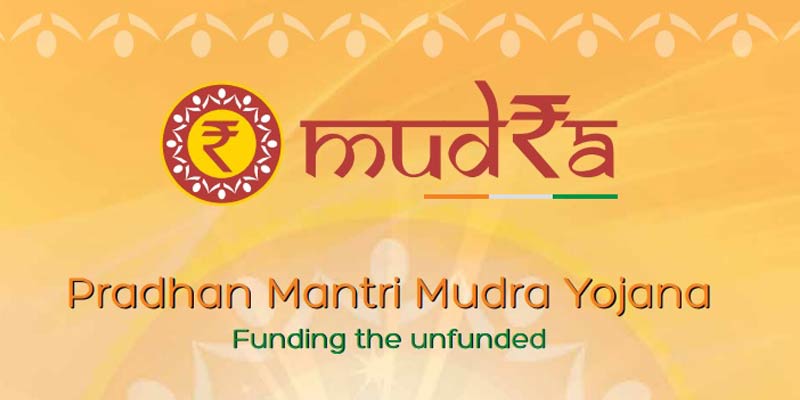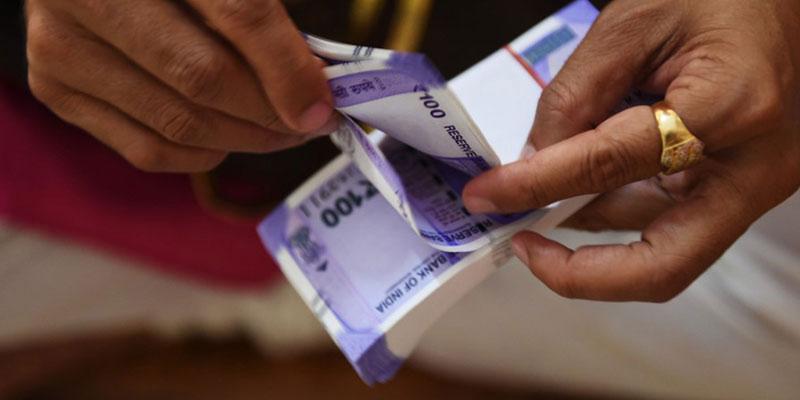- India
- Apr 08
- Sreesha V.M
Explainer - 10 years of Pradhan Mantri Mudra Yojana
• The Ministry of Finance marked the 10th anniversary of Pradhan Mantri Mudra Yojana (PMMY) on April 8.
• With over Rs 33.65 lakh crore sanctioned to more than 52 crore MUDRA loan accounts, the scheme has proved to be an important milestone in giving wings to the aspirations of entrepreneurs, particularly those belonging to marginal sections of society.
• Since 2015, Rs 11.58 lakh crore worth of MUDRA loans have been sanctioned to various marginalised communities belonging to Scheduled Castes, Scheduled Tribes and OBCs.
• Nearly 70 per cent of the total MUDRA loan accounts have been sanctioned to women, becoming a tool for empowerment and enabling women to national economic growth, and inspire the next generation of female entrepreneurs.
What is Pradhan Mantri Mudra Yojana?
• Pradhan Mantri Mudra Yojana (PMMY), an important aspect of financial inclusion, is enabling the flow of credit to small businesses. In pursuance of the announcement in the Union Budget 2015-16, the Micro Units Development Finance Agency (MUDRA) Ltd was established as a wholly owned subsidiary of Small Industries Development bank of India (SIDBI).
• PMMY was launched on April 8, 2015, by Prime Minister Narendra Modi to facilitate easy collateral-free micro-credit of up to Rs 10 lakh to non-corporate, non-farm small and micro-entrepreneurs for income-generating activities.
• In the Union Budget 2024-25, the government announced an increase in the loan limit to Rs 20 lakh.
• These loans are given by commercial banks, regional rural banks (RRBs), Small Finance Banks, Micro Finance Institutions (MFIs) and Non-Banking Financial Companies (NBFCs).
• Under the aegis of PMMY, MUDRA has created products namely, ‘Shishu’, ‘Kishore’ and ‘Tarun’ to signify the stage of growth or development and funding needs of the beneficiary micro unit or entrepreneur.
i) Shishu: covering loans up to Rs 50,000.
ii) Kishor: covering loans above Rs 50,000 and up to Rs 5 lakh.
iii) Tarun: covering loans above Rs 5 lakh and up to Rs 10 lakh.
iv) Tarun Plus: Covering loans above Rs 10 lakh and up to Rs 20 lakh for those entrepreneurs who have availed and successfully repaid previous loans under the ‘Tarun’ category.
• With an objective to promote entrepreneurship among the new generation aspiring youth, it is ensured that more focus is given to Shishu category loans followed by Kishore and Tarun categories.
• Within the framework and overall objective of development and growth of micro enterprises sector under Shishu, Kishore and Tarun, the products being offered by MUDRA are designed to meet requirements of different sectors/business activities.
• Loans under PMMY are provided to meet both term loan and working capital components of financing for income generating activities in manufacturing, trading and service sectors, including activities allied to agriculture such as poultry, dairy, beekeeping, etc.
• The rate of interest is decided by lending institutions in terms of RBI guidelines. In case of working capital facility, interest is charged only on money held overnight by the borrower.
How PMMY helps in financial inclusion?
• Implementation of financial inclusion programme in the country is based on three pillars — ‘Banking the Unbanked’, ‘Securing the Unsecured’ and ‘Funding the Unfunded’.
• ‘Funding the Unfunded’, is reflected in the financial inclusion programme through Pradhan Mantri Mudra Yojana (PMMY), which is being implemented with the objective to provide access to credit for small entrepreneurs.
• PMMY focuses on the financial needs of all stakeholders, ranging from budding entrepreneurs to the hard-working farmers, through various initiatives of the scheme.
• It is a key initiative towards providing financial support to the marginalised and hitherto socio-economically neglected classes, PMMY has given wings to the dreams and aspirations of millions.
PMMY enables businesses in smaller towns
• Micro enterprises constitute a major economic segment in our country and provide large employment after agriculture. This segment includes micro units engaged in manufacturing, processing, trading and services sector. It provides employment to nearly 10 crore people. Many of these units are proprietary/ single ownership or own account enterprises and many a time referred to as Non-Corporate Small Business sector.
• MSMEs play a vital role as ancillary units, complementing large industries and significantly contributing to the country’s inclusive industrial growth. These enterprises are continually expanding their presence across various sectors of the economy, offering a diverse array of products and services to meet both domestic and international market demands.
• The availability of credit for MSMEs has seen consistent growth, driven by advancements in technology and data-driven lending practices.
• Since the launch of PMMY in 2015, Tamil Nadu has recorded the highest disbursal among states at Rs 3.23 lakh crore. Uttar Pradesh follows with Rs 3.14 lakh crore, while Karnataka ranks third with Rs 3.02 lakh crore. West Bengal and Bihar have also seen significant disbursals of Rs 2.82 lakh crore and Rs 2.81 lakh crore respectively.
• Among Union Territories, Jammu & Kashmir leads with a total disbursal of Rs 45,815.92 crore.
• The SBI report highlights a significant rise in credit flow to MSMEs, driven by Mudra’s impact. MSME lending surged from Rs 8.51 lakh crore in FY14 to Rs 27.25 lakh crore in FY24, and is projected to cross Rs 30 lakh crore in FY25.
• The share of MSME credit in total bank credit increased from 15.8 per cent in FY14 to nearly 20 per cent in FY24, showcasing its growing role in the Indian economy. This expansion has enabled businesses in smaller towns and rural areas to access financial support that was previously unavailable, strengthening India’s self-reliant economy and driving grassroots job creation.
• A telescopic view of total loans sanctioned and disbursed under PMMY reveals that the scheme has been well received by a diverse base of intended beneficiaries, thereby strengthening the economic influence of the bottom of the pyramid.
• The average ticket size of loans has nearly tripled, rising from Rs 38,000 in FY16 to Rs 72,000 in FY23, and further to Rs 1.02 lakh in FY25. It reflects growing economies of scale and a deepening of both market depth and width.
• Furthermore, loan disbursal rose by 36 per cent in FY23, indicating a strong revival of entrepreneurial confidence across the country.
(The author is a trainer for Civil Services aspirants.)



